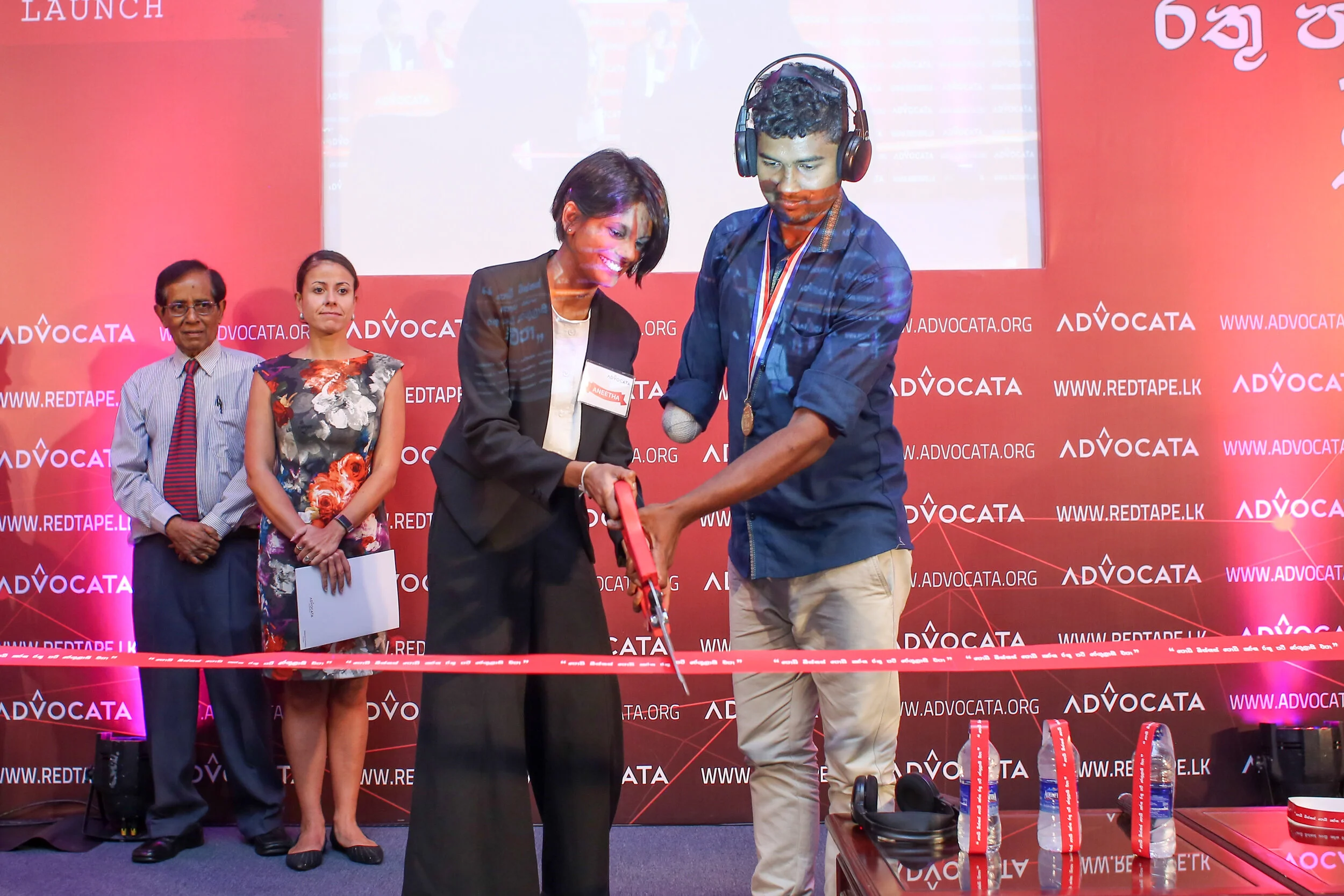Originally appeared in the Sunday Times
The Advocata Institute, an independent policy think tank based in Colombo, recently launched a report titled ‘Barriers to Micro and Small Enterprises in Sri Lanka’, based on a survey. The barriers – commonly known as ‘Red Rape’- , often results in officials enforcing regulations through bribery and corruption.
However this story is not about the Advocata or barriers or failures, but about a courageous and determined youth who successfully penetrated the barriers and become an exporter to 38 countries through his product – ‘crushed coconut husk dust’.
Advocata conducted an essay competition among 100s of prospective micro entrepreneurs to write about their woes in the process of making the application. Among those competitors 10 consolation awards and awards for the 1st, 2nd and 3rd were given. The overall winner of this essay competition was 27 year-old Madasamy Suventhiran from Kilinochchi.
He was born to a family of eight with mother and father and in 2002 his three brothers were killed due to a bomb blast. After 2009 his father went missing. Two other sisters are married and living separately and even now his mother is lame due to gunshot injuries. How he and his mother are carrying on now and their survival facing untold odds during a brutal war is what his story is all about.
In 2011-12 when he was 17 years and while studying for the A Levels he commenced work as a labourer for sustenance, working only on Saturdays and Sundays as he was then a student.
He was engaged as a construction work helper for a stipend of Rs. 700 per day and simultaneously engaged in agricultural work during paddy harvesting time and then his daily wage was around Rs. 1,000.
Desperate and struggling for survival, he unfortunately lost half his right hand when it got stuck in a harvesting machine on March 13, 2014.
After ALs, he joined a university to do an Economics Special and got through and is now expecting to read for a postgraduate Economics Special. After the accident, he changed writing with his left hand.
At one stage when he found that the present way of earning was not satisfactory, he shifted to rearing chickens on a small loan first, buying 50 broiler chicks that were grown for 45 days and sold.
He went on increasing the numbers from 50 then 100 and 200 etc and started selling 100 chickens per month, each chicken weighing 3 to 4 kg and selling a kilo at the rate of Rs. 325 live-weight, making an income of around Rs. 32,000 per month.
By then feed prices started spiraling from Rs. 2,500 a 50 kg bag to Rs. 4,500 compelling Mr. Suventhiran to look for another source of income.
He then began rearing milk cows, first starting with two and increasing it to 10, and supplying 25 to 35 litres of milk per day at the rate of Rs. 68 per litre. This activity was helped through loans from the Bank of Ceylon from Rs. 50,000, then Rs.100,000 climbing to Rs. 500,000.
Again disaster stuck when during the major floods in 2008 he lost three cows and two calves, threatening his dairy business.
Finding a new way to stay in some business, in 2019 he was able to obtain a loan of Rs. 1 million to float his new venture of crushing the coconut husk into dusty pieces using one machine and two workers operating from either side of the machine.
It is a micro enterprise employing around five in his tiny factory. He is now exporting the packed final product to 38 countries through an intermediary shipping more than 10,000 kilos at the rate of Rs. 6 per kilo.
These are the unsung heroes of Sri Lanka’s small and medium scale economy who need much support and encouragement from the authorities.

